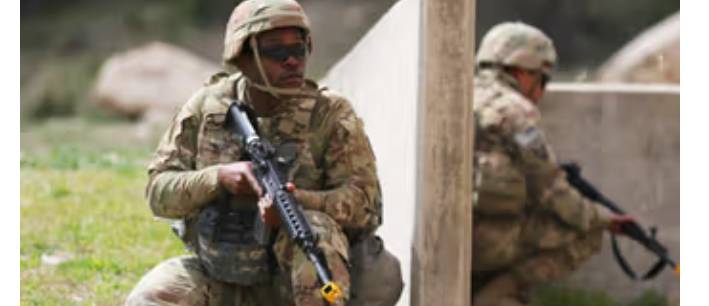Top 10 Countries with the Most Expensive Militaries in the World
The global arms race has led to staggering defense budgets as countries invest heavily in their militaries. Whether for strategic dominance, deterrence, or addressing perceived threats, these nations have allocated significant resources to their defense sectors. Here are the top 10 countries with the most expensive militaries based on their annual defense spending.
1. United States
The United States consistently tops the list, with its defense budget exceeding $800 billion annually. This accounts for nearly 40% of global military expenditure. The funds are directed towards advanced technologies, such as stealth aircraft, space capabilities, and a global network of military bases.
2. China
China is a close competitor, spending approximately $240 billion annually. With a focus on modernizing its military, the People's Liberation Army (PLA) is rapidly developing naval, space, and cyber warfare capabilities to assert dominance in the Asia-Pacific region.
3. Russia
Russia’s military budget is estimated at $80 billion, heavily focused on nuclear weapons and advanced missile systems. Despite sanctions and economic challenges, Russia prioritizes defense spending to maintain its global strategic influence.
4. India
India allocates around $76 billion annually to its military. With tensions along its borders with China and Pakistan, India invests in modernizing its forces, acquiring advanced fighter jets, and bolstering its naval capabilities.
5. Saudi Arabia
Saudi Arabia spends approximately $70 billion on defense, making it the largest spender in the Middle East. Much of its budget is directed toward acquiring cutting-edge technology and maintaining a strong air force to counter regional threats.
6. United Kingdom
The UK’s military expenditure stands at $69 billion, focusing on modernizing its navy and investing in nuclear deterrents. As a NATO member, the UK also emphasizes maintaining global expeditionary capabilities.
7. Germany
Germany spends around $65 billion annually, significantly increasing its defense budget in recent years due to the evolving security landscape in Europe. Investments include modern tanks, aircraft, and cyber defense.
8. Japan
Japan’s defense budget is approximately $60 billion, emphasizing the development of missile defense systems and advanced maritime capabilities. This is driven by regional tensions with North Korea and China.
9. South Korea
South Korea allocates around $55 billion to defense, focusing on countering threats from North Korea. The country invests in advanced missile systems, submarines, and cyber defense capabilities.
10. France
France spends nearly $54 billion annually, maintaining a balanced approach to defense with investments in nuclear deterrence, naval power, and global expeditionary forces.
Why These Budgets Matter
The high defense spending by these nations reflects a complex global security environment. Geopolitical rivalries, technological advancements, and emerging threats like cyber warfare contribute to the growing budgets. While some argue that such spending is necessary for security, others view it as a drain on resources that could be directed toward social and economic development.
As global dynamics evolve, the prioritization of defense spending will continue to play a pivotal role in shaping international relations and power structures.




No comments yet
Be the first to share your thoughts!